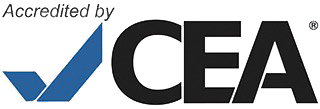Thinking of studying at a college or university in the United States? Taking the TOEFL exam is a necessary step for any non-US educated student who wants to study in North America.
Thinking of studying at a college or university in the United States? Taking the TOEFL exam is a necessary step for any non-US educated student who wants to study in North America.
The TOEFL test measures your ability to communicate in English in colleges and universities and is accepted by 7,000+ destinations in more than 130 countries. It is the most widely accepted English-language test in the world.
In the TOEFL® exam, you will be tested in the four skills of English, writing, listening, speaking and reading.
We will provide you with a very comprehensive TOEFL® preparation study focused on techniques and strategies on how to master the components required by the test.
The TOEFL® iBT Test Preparation course has been set up to be taken by F-1 students who have already completed our academic advanced level C1 or as a private course. It prepares students to achieve competitive scores on the TOEFL® iBT by focusing on test-taking strategies. Students gain confidence and improve their skills through practice questions and diagnostic tests.
This course is intended to prepare students for the TOEFL IBT (Internet-Based Test). It offers 16 weeks with a variety of practice materials in reading, writing, speaking, and listening that provide a comprehensive TOEFL® preparation course.
Schedule
Monday to Thursday – 18 hours /week
Morning: 9am – 1h30pm
Evening: 6pm -10h30pm
Fridays and Saturdays: 8:30am to 1pm / 2pm to 6:30pm

Reading
Students will be able to identify different reading strategies, as well as improve reading comprehension skills including:
demonstrating effective reading skills with short reading passages, such as understanding details, identifying topics and paraphrasing
demonstrating effective reading skills with longer reading passages, such as understanding details, identifying topics and paraphrasing, and recognizing coherence
summarizing skills, such as completing tables and charts, and creating tables and charts.
Listening
Students will be able to identify different listening strategies, as well as improve listening comprehension skills including:
demonstrating basic comprehension, such as understanding the main idea, key points, structure, purpose, conclusion, important facts and relevant details;
learning from listening, such as understanding various relationships between ideas (e.g., compare and contrast, cause and effect, agree/disagree, or steps in a process);
tracing the development of ideas or events throughout the recordings;
making inferences about an author’s opinion and what is implied in a recording.
Speaking
Students will be able to identify different speaking strategies, as well as improve speaking skills including:
responding in a way that is sustained and sufficient for the task;
synthesizing and summarizing what they have read and what they have heard in recordings;
forming their own opinion in response to the information they have read or heard;
demonstrating effective use of grammar and vocabulary;
speaking clearly and have a well-paced flow with only minor lapses in their pronunciation;
developing coherent and well developed responses with details and examples, providing a clear progression of ideas.
Writing
Students will be able to identify different writing strategies, as well as improve writing skills including:
demonstrating effective use of the necessary writing skills of brainstorming, organizing, and paraphrasing;
developing writing skills by connecting and supporting ideas;
improving sentence structure and word choice;
effectively using self-correction skills.
Hunter’s Creek
12200 Menta St. suite 110,
Orlando, Florida – 32837
Metrowest
1507 Park Center Dr, suite 1H
Orlando, Florida – 32835